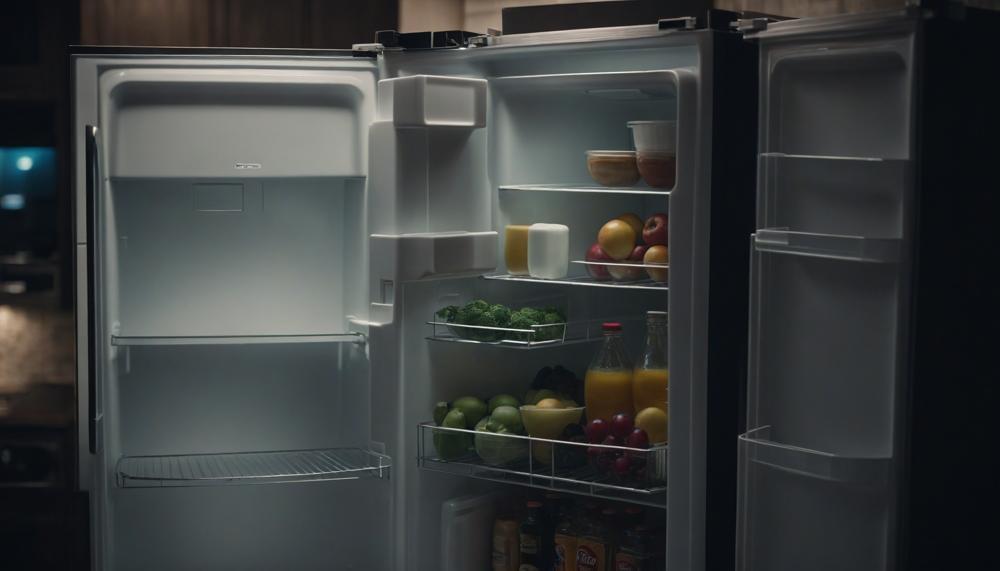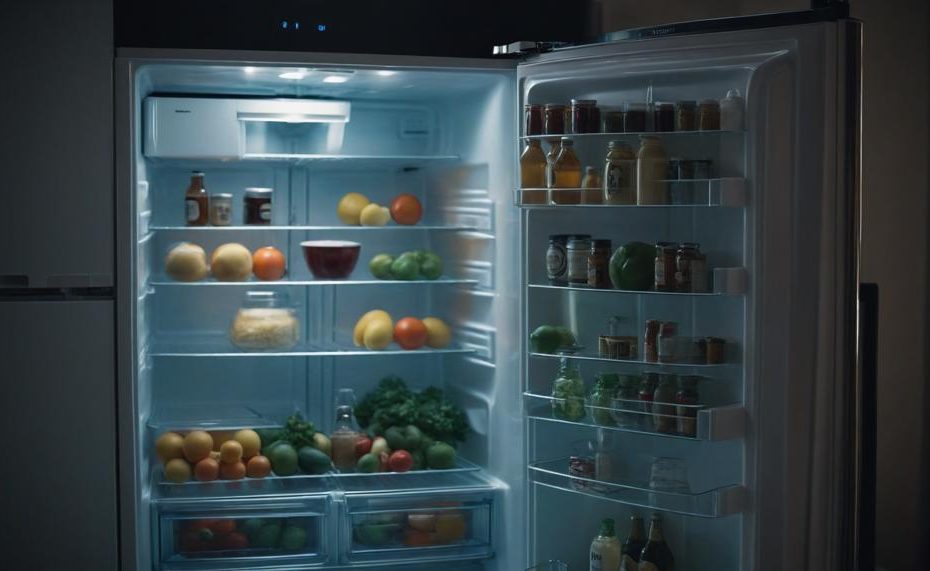Properly disposing of a refrigerator is more than just a logistical task—it’s a responsibility that impacts our environment and community. With substances like oils and refrigerants lurking inside, improper disposal can harm ecosystems and contribute to pollution. So, what should you do with that old fridge when it’s time for an upgrade?
First off, consider donating your still-working refrigerator to someone in need or a local charity. It’s a simple way to give back and ensure the appliance continues to be of use. If donation isn’t an option, you can turn to Responsible Appliance Disposal (RAD) partners, who specialize in environmentally-friendly disposal methods. You can locate these partners through online searches or by contacting the EPA.
Many electric utility companies also offer refrigerator disposal services and might even pay you for swapping out your old model for a more energy-efficient one. Waste management companies and manufacturers often have recycling programs in place, so reach out to them as well. Some appliance stores even offer removal services when delivering your new fridge. And if you’re looking to make a bit of cash, scrap metal recyclers might be interested in purchasing your old appliance.
Key Takeaways:
- Donation: Give your working refrigerator to someone in need or a charitable organization.
- RAD Partners: Use specialized services for eco-friendly disposal, found via online searches or the EPA.
- Utility Companies: Check if your electric utility offers disposal services or compensation for upgrading to energy-efficient models.
- Waste Management: Contact local waste management companies for recycling programs.
- Appliance Stores: Take advantage of removal services when purchasing a new refrigerator.
- Scrap Metal Recyclers: Sell your old refrigerator to recyclers participating in recycling programs.
By following these steps, you ensure that your old refrigerator is disposed of properly, protecting the environment and possibly benefiting others in the process.
Contents
Environmental Concerns
Improper disposal of refrigerators significantly harms the environment, mainly through the release of hazardous chemicals like chlorofluorocarbons (CFCs) and hydrochlorofluorocarbons (HCFCs). These chemicals, once common in older refrigerator models, damage the ozone layer, increasing ultraviolet (UV) radiation and contributing to global warming.
According to the Environmental Protection Agency (EPA), over 10 million tons of CFCs are released annually due to improper refrigerator disposal. This exacerbates climate change and heightens health risks, including skin cancer and other ailments.
Furthermore, discarded refrigerators add to landfill waste, occupying precious space and potentially leaching toxic substances into soil and groundwater. Refrigerators and similar appliances constitute about 9% of municipal waste in the United States, according to the EPA.
To mitigate these environmental impacts, here are some environmentally-friendly disposal solutions:
| Solution | Description | Benefits |
| Recycling | Many municipalities offer appliance recycling programs that safely remove harmful chemicals before recycling the components. | Reduces harmful emissions, conserves landfill space, and recycles valuable materials. |
| Donation | Donate working refrigerators to organizations like Habitat for Humanity, which can provide the appliance to those in need. | Prevents waste and supports community needs. |
| Certified Recycling Facilities | Use facilities certified by the EPA or similar authorities to ensure safe removal of refrigerants and proper recycling. | Ensures harmful substances are handled correctly and promotes sustainable recycling practices. |
| Manufacturer or Retailer Take-Back Programs | Many manufacturers and appliance stores offer take-back services when delivering new appliances. | Convenient and ensures proper disposal by professionals. |
| Utility Company Programs | Some electric utility companies offer refrigerator disposal services, sometimes with incentives for replacing old units with energy-efficient models. | Encourages energy efficiency and proper disposal. |
By adopting these solutions, we can significantly reduce the environmental impact of refrigerator disposal, contributing to a healthier planet.
How to Dispose of an Appliance
When disposing of a refrigerator, follow these steps to ensure proper handling and environmental safety.
| Step | Action | Details |
| 1 | Assess the Condition | Determine if the refrigerator is functional for donation. |
| 2 | Contact Waste Management | Check if they offer appliance recycling programs. |
| 3 | Check with Scrap Metal Recyclers | See if they will buy your old fridge for repurposing. |
| 4 | Manufacturer or Retailer Services | Ask about removal services when purchasing a new fridge. |
| 5 | Handle Refrigerants Properly | Ensure a professional safely removes refrigerants. |
| 6 | Explore Utility Company Programs | Check for disposal services and possible incentives. |
| 7 | Receive Potential Benefits | Inquire about checks or bill credits during disposal arrangements. |
What Happens to Disposed Appliances
Improperly disposing of refrigerators can have severe environmental consequences. These appliances often contain harmful substances, such as ozone-depleting refrigerants and foam blowing agents, which can escape into the atmosphere if not handled correctly. Here’s a detailed analysis of the potential impacts:
Potential Environmental Impacts of Improperly Disposing of Refrigerators

- Harmful Emissions: Older refrigerators contain refrigerants like CFCs and HCFCs, which are potent ozone-depleting substances. When these refrigerants are released into the atmosphere, they break down ozone molecules, thinning the ozone layer that protects Earth from harmful ultraviolet radiation.
- Soil and Water Contamination: Hazardous components like mercury and PCBs can leach into the ground if refrigerators are dumped in landfills, contaminating soil and groundwater. This pollution can harm ecosystems and human health, leading to severe long-term consequences.
- Greenhouse Gas Emissions: Refrigerants and foam blowing agents in refrigerators are powerful greenhouse gases. If these substances are not properly recovered and destroyed, they contribute significantly to climate change, exacerbating global warming.
- Energy Waste: Recycling old refrigerators properly allows for the recovery of valuable materials such as metals, which can be reused. Improper disposal leads to the loss of these materials, increasing the need for new raw materials and energy consumption.
- Export to Developing Countries: Many old appliances are exported to developing nations where environmental regulations are lax. This results in improper handling and disposal, exposing local communities to hazardous materials and environmental degradation.
To mitigate these impacts, it is essential to follow responsible disposal practices, including recycling and proper management of hazardous components.
Additional Regulatory Information
Disposing of refrigerators and household appliances involves specific regulations to ensure environmental protection and safety. Below are the key guidelines and steps to follow:
Regulations for Disposal:
Hazardous Component Removal:
- Refrigerators: Must have refrigerants, oils, and PCBs removed by certified professionals before disposal. Improper venting of refrigerants is illegal.
- Other Appliances: Check for hazardous components like mercury in thermostats or switches, which need safe extraction.
Municipal Collection and Recycling:
- Appointments: Many municipalities require scheduling for bulky item collection. Check with your local waste management department for specific requirements.
- Transfer Stations and Landfills: Some areas have designated facilities for dropping off large appliances.
Recycling Programs:
- Retailer Take-Back: Some retailers offer take-back programs when you purchase a new appliance.
- Bounty Programs: Certain utilities and organisations provide discounts or vouchers for recycling old appliances.
Illegal Dumping Prevention:
- Scheduled Collection: Always use authorised collection services to avoid illegal dumping.
- Peddler Risks: Leaving appliances on the curb can lead to unsafe disposal by unauthorised collectors.
Steps to Ensure Proper Disposal
Identify Hazardous Components:
Look for refrigerants, oils, PCBs, and mercury. Ensure these are handled by professionals.
Schedule Collection or Drop-off:
Contact your municipal waste management service to arrange for pick-up or find the nearest authorised drop-off location.
Utilise Retailer Programs:
When buying a new appliance, check if the retailer will take your old one.
Verify Disposal Practices:
Confirm that the entity handling your appliance follows proper disposal methods. Avoid using services that don’t provide clear, responsible practices.
Recycle Responsibly:
Ensure that materials like metals, plastics, and foam insulation are recycled correctly to minimise environmental impact.
Conclusion
Disposing of a refrigerator responsibly is crucial for protecting our environment and supporting our community. Instead of seeing it as a cumbersome task, consider it an opportunity to make a positive impact. Start by donating a functioning refrigerator to someone in need or a local charity, extending its useful life and aiding others.
For non-functional units, reach out to Responsible Appliance Disposal (RAD) partners, accessible via the EPA, to ensure eco-friendly disposal. Many electric utility companies offer refrigerator disposal services, often providing incentives for upgrading to energy-efficient models. Additionally, waste management companies and manufacturers frequently run recycling programs, and some appliance stores offer removal services when delivering new refrigerators.
Scrap metal recyclers can also be a viable option, potentially offering a bit of cash for your old appliance. By utilizing these resources, you not only adhere to regulations but also contribute to reducing harmful emissions and conserving landfill space.
Proper disposal prevents the release of hazardous chemicals like CFCs and HCFCs, which deplete the ozone layer and contribute to climate change. It also curtails soil and water contamination from substances such as mercury and PCBs, safeguarding ecosystems and human health.
By following these steps, you play a vital role in protecting our planet, promoting sustainability, and potentially benefiting others in the process.





